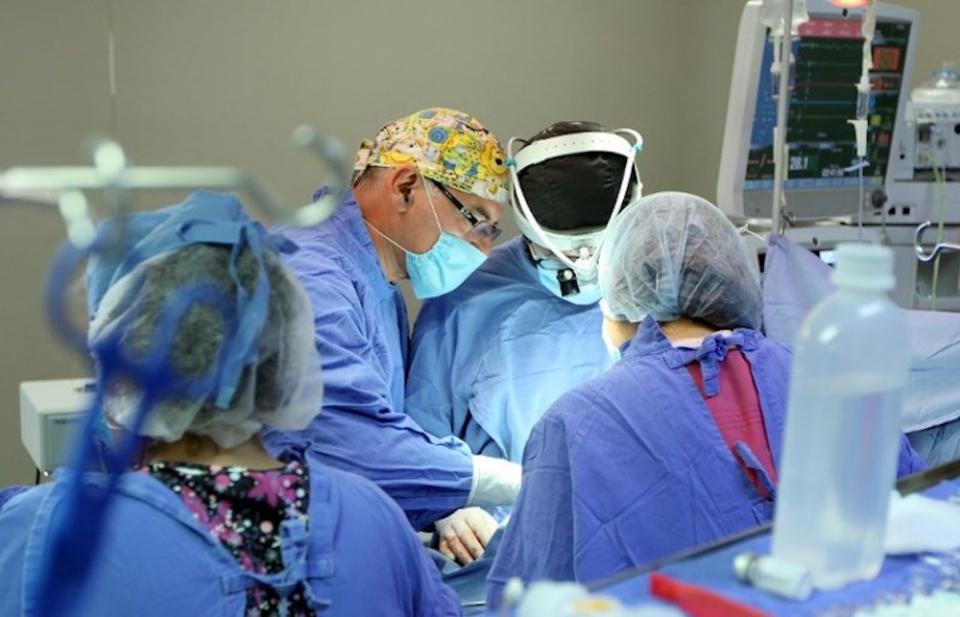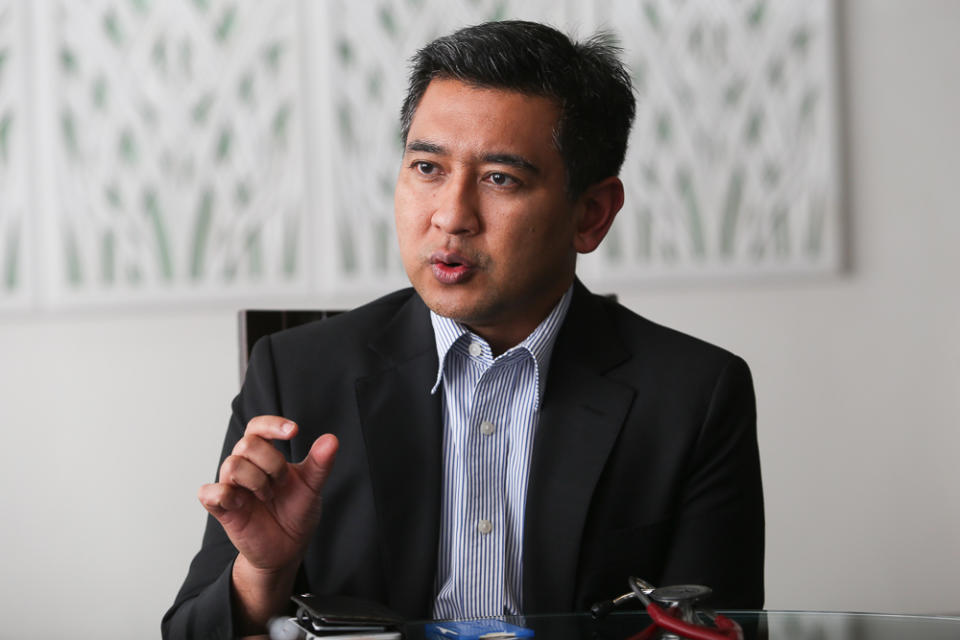Heart transplants at IJN: Last resort to stem worrying trend of heart failure in Malaysia

KUALA LUMPUR, May 24 — As terrifying as it may sound to many, a heart transplant is a life-saving though complex surgical procedure.
It is a surgery where a patient’s failing heart is removed and replaced with a healthier donor heart.
Without it, most patients who are diagnosed with end-stage heart failure or severe coronary artery disease would not be able to survive for very long.
According to National Heart Institute (IJN) heart failure and heart transplant clinical director Datuk Dr Azmee Mohd Ghazi, heart failure has become more serious than cancer, but many people are still unaware of its severity.
He said Malaysians were developing heart disease at a younger age when compared with their peers in other countries.
“This is mainly due to a sedentary lifestyle coupled with high consumption of sugar and unhealthy food,” he added.
Earlier this year, Health Ministry reported that heart disease has remained the leading cause of death among Malaysians for 13 years from 2005 to 2017.
The same report also highlighted that the mortality rate increase due to heart disease was at a worrying stage as it had seen a 54 per cent increase over 10 years with over 13,000 deaths in 2017 when compared to 8,776 in 2007.
Dr Azmee highlighted that heart failure, which is often caused by coronary artery disease or prior heart attack, is a condition when the heart is unable to pump sufficiently to maintain blood flow to meet the body’s needs.
According to him, usually 50 per cent of heart failure patients die within five years of diagnosis.
Thanks to the advancement of medical technology over the past few decades, he said the life-threatening disease is no longer the end of the world for patients.
He added that it can be treated through many options depending on the severity of the illness.

The life-saving treatments
Besides medication and a patient management scheme, Dr Azmee said IJN offered various treatment options to help increase a patient’s life expectancy.
One such treatment is the use of pacemaker for patients with abnormal heart rate.
The small device is used to send electrical impulses to the heart muscle to maintain regular heart rate and rhythm.
For those with more severe heart failure that can’t be helped with medication or lifestyle changes, Dr Azmee said a heart transplantation or mechanical heart implantation may be the most effective option to significantly prolong the patient’s life.
IJN performed the country’s first heart transplant in December 1997, and continued to achieve various milestones along the way.
In 2005, the centre successfully performed Malaysia’s first mechanical heart implantation as a bridge to transplantation.
Dr Azmee said the mechanical heart was a great alternative to support patients on the heart transplant waiting list or those who are not comfortable of receiving a transplanted heart.
Despite the high prevalence of heart failure in the country, Dr Azmee said IJN usually gets to perform only one or two cases a year at most.
“This is mainly because there’re not enough donors, and also not many heart failure patients are willing to undergo the transplantation surgery,” he added.
At the moment, the hospital has about 20 patients on the waiting list to receive a new heart.
To date, IJN has successfully performed 23 heart transplant surgeries and is the only hospital in the country that offers heart transplantation and mechanical heart implantation surgery with a highly trained team.
Although the heart transplantation comes with a hefty price tag, Dr Azmee said the entire procedure, medication and follow-ups cost is covered by government funds and the IJN Foundation.
However, that doesn’t apply to the mechanical heart implantation surgery.
Equipped with the latest state-of-the-art medical equipment, the multi-award winning centre has become sought after among patients from Indonesia and other regional countries.
The hospital recently gave a new lease of life to a young Indonesian patient following a mechanical pump implantation surgery.

Going under the knife
Because donor hearts are in short supply, patients who need heart transplants go through a rigid selection process.
Dr Azmee pointed out that heart transplantation requires careful physical and psychological assessment to ensure that the patient’s body is fit enough to undergo the surgery and accept the foreign organ.
“There are various criteria to consider, including age, compatibility and the wellbeing of the patient’s other organs to avoid acute rejection and post-operation risks,” he added.
Dr Azmee highlighted that one of the most serious risks of organ transplant is rejection, which occurs when the body’s immune system spots an unknown organ and tries to destroy it.
“Therefore, to reduce the rejection risks, we put the patients on immunosuppression medication for the rest of their lives to keep the body’s immune system from attacking the transplanted heart,” he added.
However, because the medication surpasses the body’s immune system, it put the patients at high risk of infections, kidney failure or even lymphoma cancer if the patients don’t attend regular follow-up appointments with their care team.
Dr Azmee said heart failure was a chronic disease that required life-long management, even after heart transplant surgery.
“The patients must start making lifestyle changes and keep their heart and overall wellbeing in check very frequently,” he added.
Although most recipients can live a normal life after the surgery, Dr Azmee said the only restriction is that they have to take their medication every day accordingly to avoid acute rejection and possible heart failure again.
Related Articles Ismail Kamus tetap solat Tarawih walau di atas katil After 21 years, Malaysia’s longest surviving heart transplant patient is still going strong PAS chief Hadi admitted to IJN


